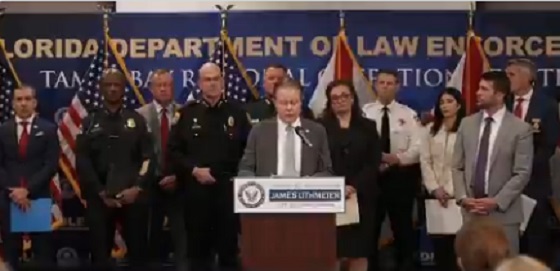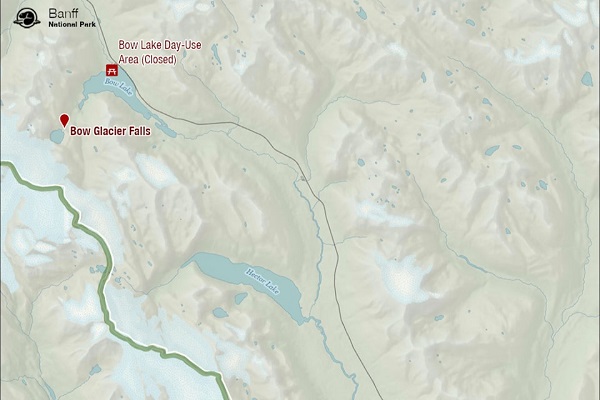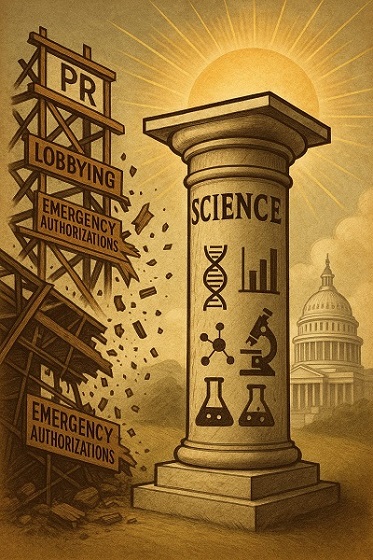Opinion
Coming at 8 p.m. tonight: The debut of Cam Tait’s podcast drama, The Awkward Homecoming

COVID-19
Ontario man launches new challenge against province’s latest attempt to ban free expression on roadside billboards

The Justice Centre for Constitutional Freedoms announces that Ontario resident George Katerberg has launched a legal challenge against the Ontario Ministry of Transportation for banning roadside billboards with social or political messages. Mr. Katerberg believes that the Ministry’s policies go too far and undermine the freedom of expression of all Ontarians.
This case goes back to March 2024, when Mr. Katerberg, a retired HVAC technician, rented a billboard on Highway 17 near Thessalon, Ontario, that featured images of public health officials and politicians alongside a message critical of their statements about vaccines.
After the Ministry rejected his proposed billboard several times on the grounds it promoted hatred, a constitutional challenge was launched with lawyers provided by the Justice Centre. Mr. Katerberg’s lawyers argued that the Ministry’s position was unreasonable, and that it did not balance Charter rights with the purposes of relevant legislation.
The Ministry later admitted that the sign did not violate hate speech guidelines and agreed to reconsider erecting the billboard.
However, in April 2025, the Ministry quietly amended its policy manual to restrict signs along “bush highways” to those only promoting goods, services, or authorized community events.
The new guidelines are sweeping and comprehensive, barring any messaging that the Ministry claims could “demean, denigrate, or disparage one or more identifiable persons, groups of persons, firms, organizations, industrial or commercial activities, professions, entities, products or services…”
Relying on this new policy, the Ministry once again denied Mr. Katerberg’s revised billboard.
Constitutional lawyer Chris Fleury explains, “By amending the Highway Corridor Management Manual to effectively prohibit signage that promotes political and social causes, the Ministry of Transportation has turned Mr. Katerberg’s fight to raise his sign into a fight on behalf of all Ontarians who wish to express support for a political or social cause.”
No date has yet been assigned for a hearing on this matter.
Business
Federal government should finally cut Trudeau-era red tape

From the Fraser Institute
If Prime Minister Carney really wants to show he’s committed to “Building Canada” he’d ceremoniously defenestrate Bill C-48, scap the cap on Canadian Oil and Gas related greehhouse gas emissions, and ax the so-called Clean Electricity Regulations
As pretty much everyone knows, Canada has a building problem. Whether it’s provincial building of housing or infrastructure, or national building of highways, pipelines or energy production facilities, Canada can seemingly not get things built no matter how many companies and investors propose projects (or how many newspaper opinion columns or public opinion polls shows that people want things built).
The Carney government appears to recognize this problem and recently introduced Bill C-5. Of course, appearances can be deceiving. Superficially, a lot of what’s in the proposed bill sounds good: facilitating free trade and labour mobility inter-provincially, and ostensibly streamlining government’s regulatory powers to facilitate the timely building of projects deemed to be in Canada’s national interests. Who could be against that?
Per the government, the “Bill seeks to get projects in the national interest built by focusing on a small number of executable projects and shifting the focus of federal reviews from ‘whether’ to build these projects to ‘how’ to best advance them.” Again, looks great, but even a cursory reading by a legal layman reveals the fact that, in reality, little has changed in regard to the approval of major building projects in Canada. Just as it is now, under the new regime, the prime minister’s office (and designees elsewhere in government) ultimately have carte blanche in deciding whether or not projects of significance can be built in Canada, under what timeline, and based on whatever criteria they deem appropriate.
All that is better than nothing, of course, but words (particularly political words) are cheap and actions more valuable. If Prime Minister Carney really wants to show he’s committed to “Building Canada” he’d ceremoniously defenestrate Bill C-48 (a.k.a. the “Tanker Ban Bill”), which came into effect last year under the Trudeau government and changed tanker regulations off British Columbia’s northern coast, torpedoing any prospects of building oil export pipelines on Canada’s west coast.
He could also scrap the cap on Canadian oil and gas-related greenhouse gas emissions (introduced by the Trudeau government in 2024) and regulations (also introduced in 2024) for methane emissions in the oil and gas sector, both of which will almost inevitably raise costs and curtail production.
Finally, the prime minister could ax the so-called “Clean Electricity Regulations” that will likely drive electricity rates through the roof while ushering in an age of less-reliable electricity supply and less building of conventional energy-generation from natural gas, a fuel far more reliable than Canada’s fickle winds and often-tepid sunlight. By driving up energy costs across Canada and through the entire chain of production and service economies, these regulations (again, enacted by the Trudeau government) will make it more expensive to build anything anywhere in Canada.
Prime Minister Carney has made some nice noises seemingly recognizing that Canada has a building problem, particularly with regard to energy projects, and Bill C-5 makes equally nice (yet ill-defined) noises about regulatory reform in the energy and natural resource sectors. But Canada doesn’t have a shortage of nebulous government pronouncements; it has an overdose of regulatory restrictions preventing building in Canada. He should show real seriousness and eliminate the raft of Trudeau-era red tape stifling growth and development in Canada.
And sooner is better than later. Canada’s biggest economic competitors (not only the United States) are not sitting on their red-taped hands watching their economies decline.
-

 Business1 day ago
Business1 day agoPotential For Abuse Embedded In Bill C-5
-

 conflict1 day ago
conflict1 day agoDespite shaky start, ceasefire shows signs of holding
-

 Health1 day ago
Health1 day ago‘Transgender’ males have 51% higher death rate than general population: study
-

 Alberta1 day ago
Alberta1 day agoSo Alberta, what’s next?
-

 Business2 days ago
Business2 days agoCanada should already be an economic superpower. Why is Canada not doing better?
-

 conflict2 days ago
conflict2 days ago‘They Don’t Know What The F*ck They’re Doing’: Trump Unloads On Iran, Israel
-

 Crime2 days ago
Crime2 days agoFlorida rescues 60 missing kids in nation’s largest-ever operation
-

 Business2 days ago
Business2 days agoYounger Casino Bettors Are Upping the Ante on Risky Gambling in British Columbia, Documents Show








